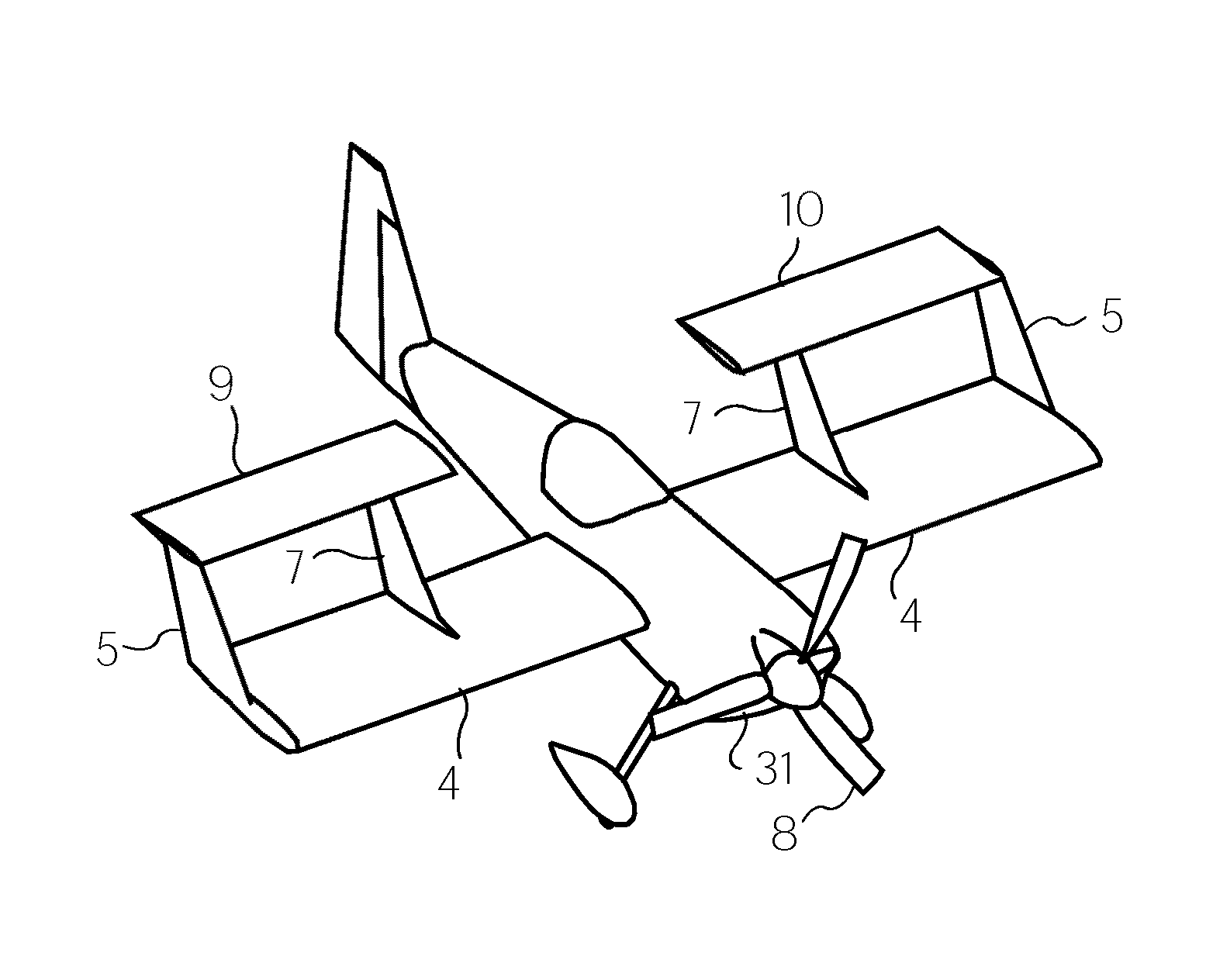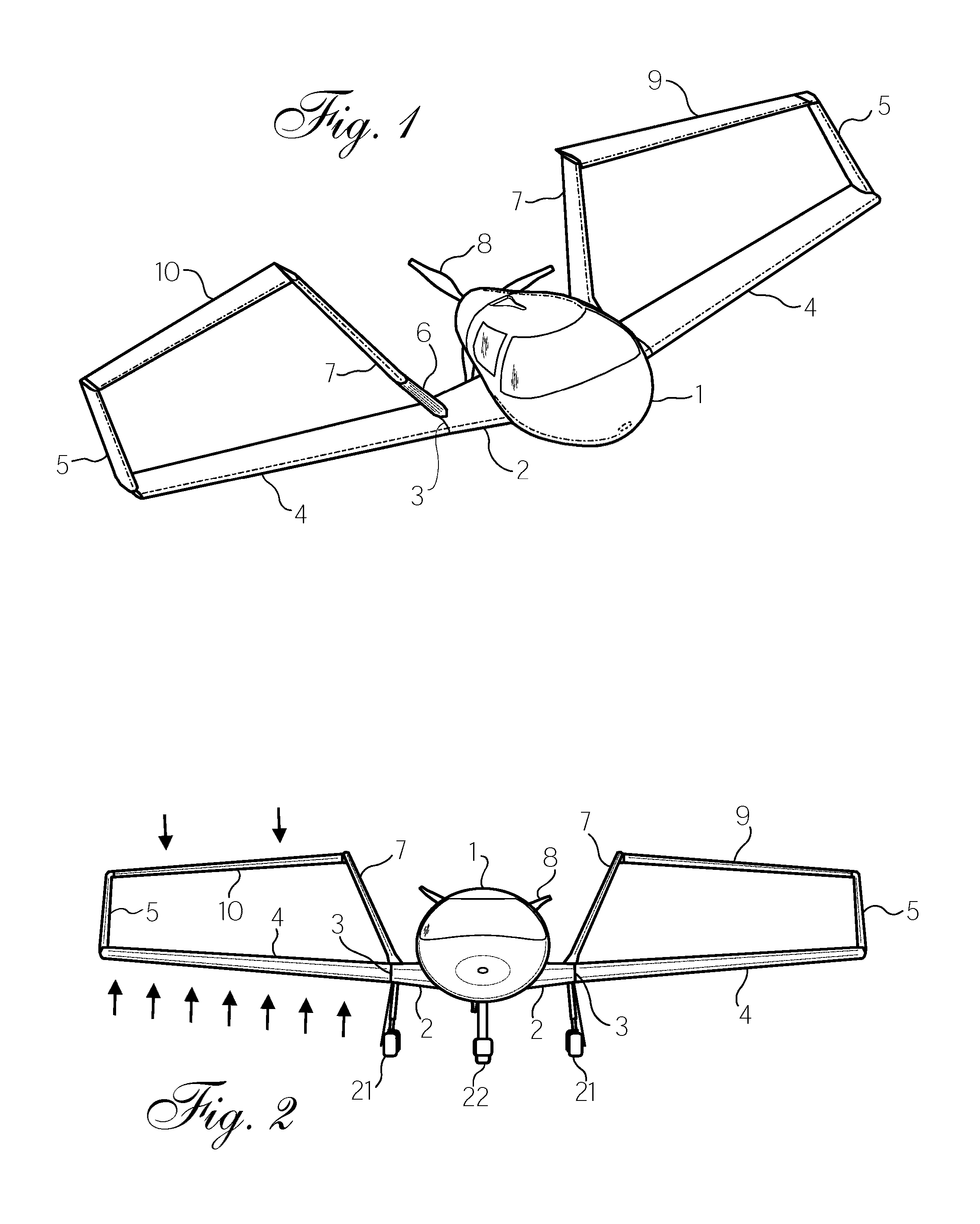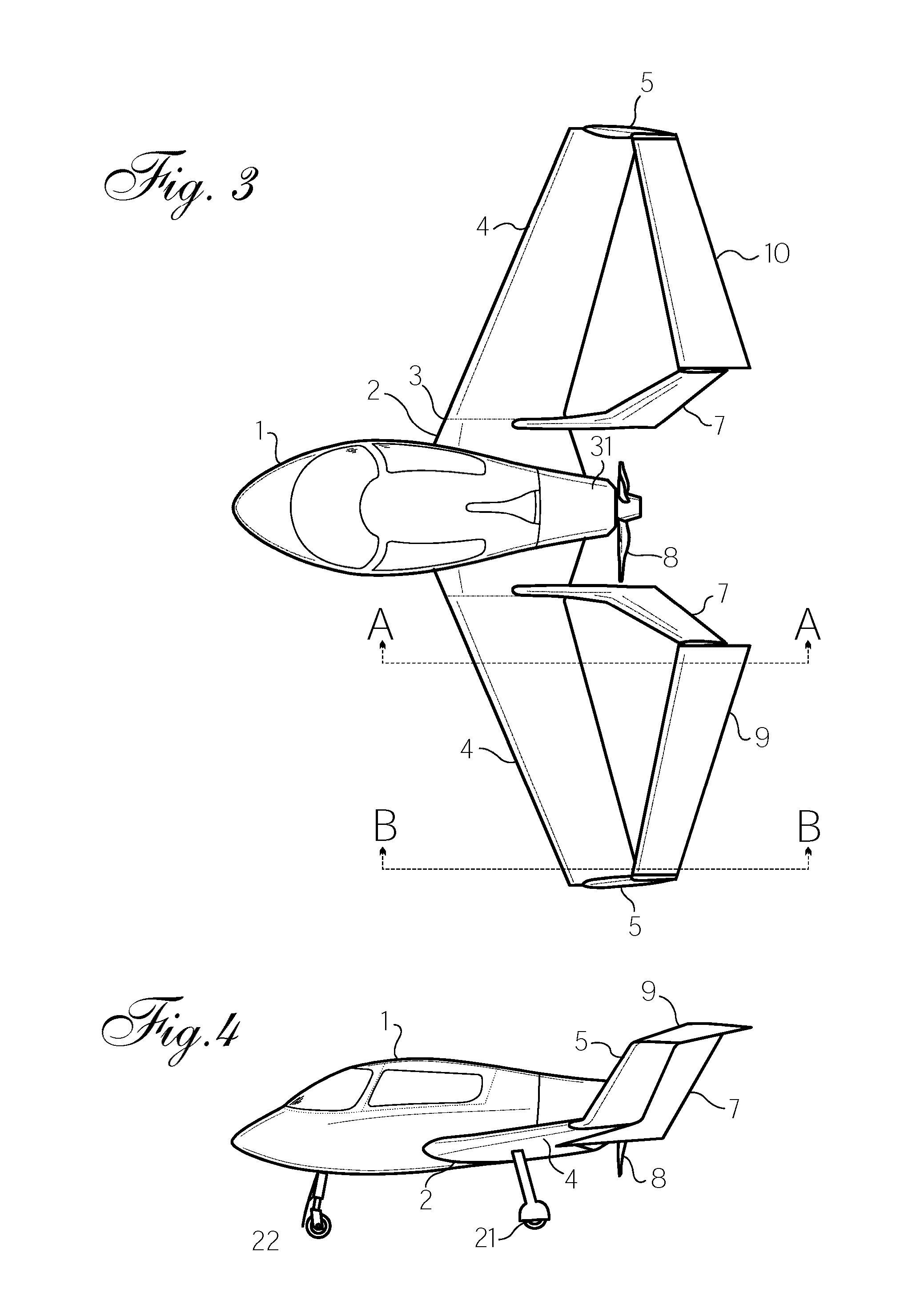Aircraft stability and efficient control through induced drag reduction
a drag reduction and aircraft technology, applied in the field of aircraft, can solve the problems of unfavorable separation of wing airflow, superficial resemblance, and observed fundamental flaws, and achieve the effects of reducing the number of parts, low cost, and high performan
- Summary
- Abstract
- Description
- Claims
- Application Information
AI Technical Summary
Benefits of technology
Problems solved by technology
Method used
Image
Examples
Embodiment Construction
[0061]The invention disclosed is a fundamental enabling technology that may be embodied in various forms. Therefore, specific details disclosed herein are not to be interpreted as limiting, but rather as a basis for the claims and as a representative basis for teaching one skilled in the art to employ the present invention in virtually any appropriately detailed system, structure, or manner. The present invention applies to innumerable aircraft designs including next (FIG. 5) and future generation (FIG. 13) large transport aircraft, next generation general aviation aircraft (FIG. 1), commuter aircraft (FIG. 16), blended wing body aircraft (FIG. 17), Light Sport Aircraft (FIG. 15), personal air vehicles, remotely piloted vehicles (RPVs), unmanned aerial vehicles (UAVs), model aircraft, toy airplanes, and many others. Since the invention can be readily adapted into products built by a majority of aircraft manufacturers, using a variety of material processes, the technology is not disr...
PUM
 Login to View More
Login to View More Abstract
Description
Claims
Application Information
 Login to View More
Login to View More - R&D
- Intellectual Property
- Life Sciences
- Materials
- Tech Scout
- Unparalleled Data Quality
- Higher Quality Content
- 60% Fewer Hallucinations
Browse by: Latest US Patents, China's latest patents, Technical Efficacy Thesaurus, Application Domain, Technology Topic, Popular Technical Reports.
© 2025 PatSnap. All rights reserved.Legal|Privacy policy|Modern Slavery Act Transparency Statement|Sitemap|About US| Contact US: help@patsnap.com



